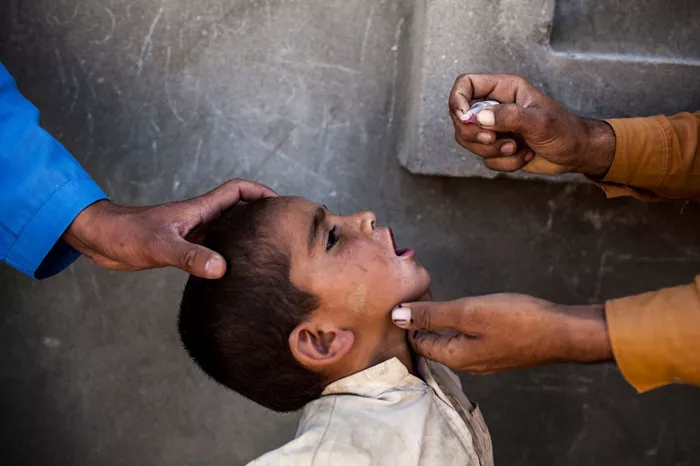Abdul Rahman, a baby boy in Gaza, sleeps in a worn car seat as his mother, Niveen Abu al-Jidyan, gently rocks him. Unaware of the drones hovering above or the disease affecting his body, Abdul Rahman faces a grim reality.
“He can’t stand, sit, or move like he used to. He is very weak,” Abu al-Jidyan tells CNN from a makeshift tent in the Al-Mawasi refugee camp. “He will be one next month. He should be walking by now, but he suddenly stopped moving.”
Abdul Rahman is Gaza’s first polio case in 25 years. Polio, once a global threat, is now easily preventable with a vaccine. The disease primarily affects children under 5 and can cause irreversible paralysis and death. According to the World Health Organization (WHO), it is highly infectious and has no cure—only prevention through immunization.
In response to the outbreak, the Israeli military is vaccinating its troops operating in Gaza. However, Abdul Rahman has not received the standard infant vaccinations that could have protected him due to the ongoing conflict.
Before the war, Gaza had nearly universal vaccine coverage, but it has since dropped to just over 80%. The reemergence of polio underscores the dire conditions faced by Gaza’s two million residents, who have endured Israeli bombardment since October last year. The conflict has led to severe shortages of food, medical supplies, and clean water, with up to 90% of the population displaced.
To address the outbreak, WHO and UNICEF plan a mass vaccination campaign targeting 640,000 children under 10 in Gaza. The goal is to achieve around 95% vaccine coverage to prevent further spread of the virus. WHO warns that failure to meet this target could result in widespread polio infections among Gaza’s children.
The campaign faces significant challenges due to the ongoing Israeli military offensive, which has killed over 40,000 people and devastated Gaza’s infrastructure. Repeated evacuation orders have forced thousands to flee their homes, complicating the vaccination effort.
“The administration of the vaccine is the easy part. The difficult part is everything else,” said Sam Rose, director of planning at UNRWA, in an interview with CNN’s Jeremy Diamond from Gaza. “We previously had 22 health centers across Gaza, but only five are currently operational. The constant bombardments have drastically reduced our operating space.”
The vaccination drive is scheduled to begin on August 31, depending on conditions. COGAT, the Israeli agency responsible for coordinating movement into and out of Gaza, has allowed more than 25,000 vials of the polio vaccine and necessary cooling equipment into the strip.
For Abu al-Jidyan and her son, the efforts come too late. “I feel helpless,” she says. “It is difficult for me and the doctors because the situation is very bad.” She hopes for her son to walk again. Although there are treatments to alleviate polio symptoms, finding these treatments will be challenging given Gaza’s struggling healthcare system.
Abu al-Jidyan pleads for help: “Take him abroad for treatment or find a solution so my son can start walking and moving again.”


